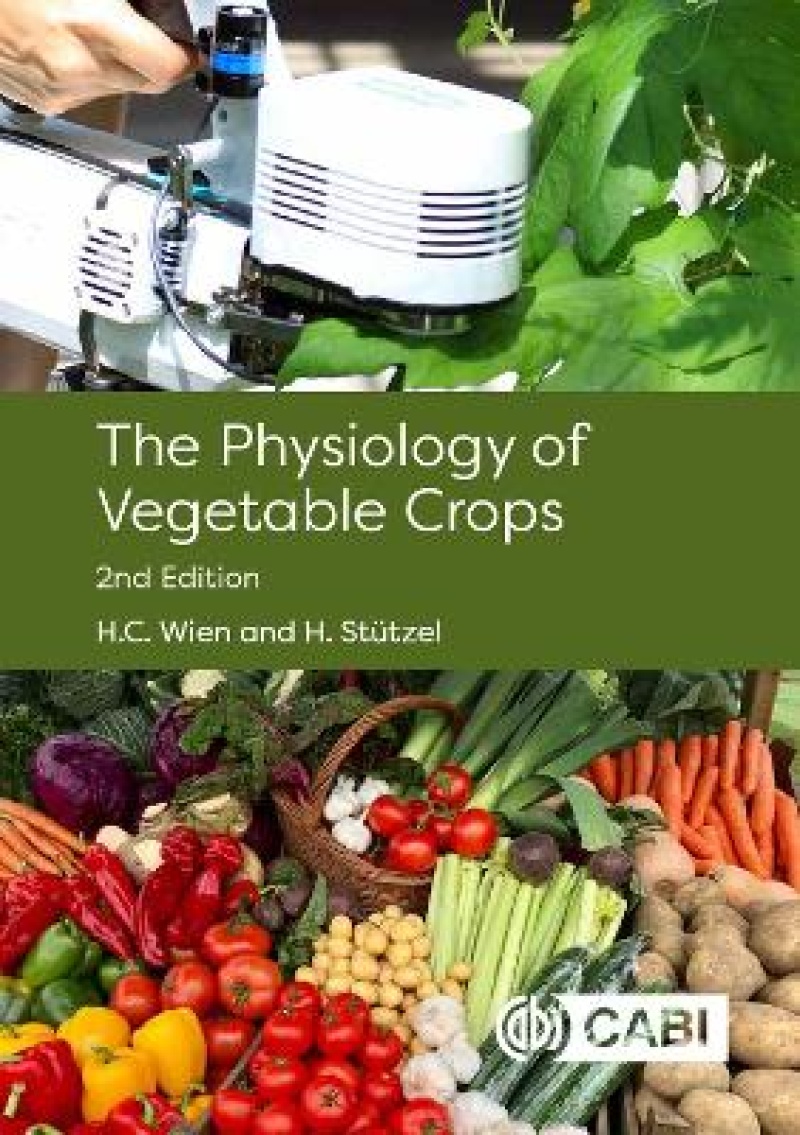Completely updated and revised, this bestselling book continues to explain the growth and developmental processes involved in the formation of vegetables. Since the publication of the successful first edition significant discoveries, particularly in the area of molecular biology, have deepened and broadened our knowledge and understanding of these processes. This new edition brings the topic up-to-date and is presented over two sections: the first provides general knowledge on germination, transplanting, flowering, the effects of stress and modelling, whilst the second section details the physiology of specific crops or crop groups. The second edition of The Physiology of Vegetable Crops: · contains two new chapters looking at stress effects on vegetable crops with a particular emphasis on climate change and models of vegetable growth and development · is fully updated to reflect recent discoveries and the advent of new production techniques such as growing in artificial environments · provides enhanced understanding of the growth and function of 18 different vegetable crops · is heavily illustrated and published in full colour throughout With contributions from renowned international experts, this is an essential resource for horticultural researchers and extension educators and consultants, as well as a reference for students and researchers in vegetable production, plant breeding, entomology and plant pathology.
Les mer
This is a new edition of a popular title, providing enhanced understanding of the growth and function of 18 different vegetable crops. It is fully revised with new chapters on models and the effects of climate change; now presented in full colour throughout.
Les mer
1: Seed Storage, Germination, Quality and Enhancements 2: Transplanting 3: Regulation of flowering in crop plants 4: Abiotic stress effects on vegetable crops 5: Models of vegetable growth and development 6: Correlative growth in vegetable plants 7: Tomato 8: Peppers 9: Potato 10: The Cucurbits 11: Phaseolus Beans 12: Peas 13: Sweet Corn 14: Lettuce 15A: Cauliflower, Broccoli, Cabbage and Brussels Sprouts 15B: Glucosinolates in Brassica 16: The Root Vegetables: Beet, Carrot, Parsnip and Turnip 17: Allium Crops 18: Asparagus
Les mer
Since the publication of the first edition of this book, significant discoveries have deepened and broadened our knowledge and understanding of the growth and developmental processes involved in the formation of vegetables, particularly in the area of molecular biology. This new edition brings the topic up-to-date and is presented over two sections: the first provides general knowledge on germination, transplanting, flowering, the effects of stress and modelling, whilst the second section details the physiology of specific crops or crop groups. The second edition of The Physiology of Vegetable Crops: · contains two new chapters looking at stress effects on vegetable crops with a particular emphasis on climate change and models of vegetable growth and development · reflects recent discoveries and the advent of new production techniques such as growing in artificial environments · provides enhanced understanding of the growth and function of 18 different vegetable crops With contributions from renowned international experts, this is an essential resource for horticultural researchers and extension educators and consultants, as well as a reference for students and researchers in vegetable production, plant breeding, entomology and plant pathology.
Les mer
Horticultural researchers, extension educators, consultants
Produktdetaljer
ISBN
9781786393777
Publisert
2020-05-05
Utgave
2. utgave
Utgiver
CABI Publishing
Vekt
1379 gr
Høyde
244 mm
Bredde
172 mm
Dybde
29 mm
Aldersnivå
G, 01
Språk
Product language
Engelsk
Format
Product format
Innbundet
Antall sider
512
Bidrag av
